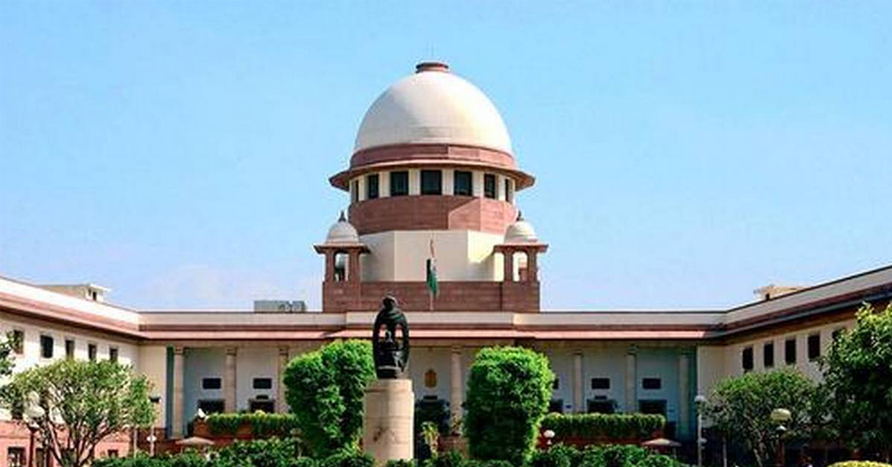The State has to act as per the directives of the governing law of the country. More than 70 years judicially tested constitutional rights meant for the oppressed cannot be interpreted to sustain their inequality as ‘fait accompli’.
Dr. K.Veeramani
Recently the Supreme Court of India delivered a verdict on the appeal, over the judgment of the High Court of Uttarakhand. The Supreme Court verdict, given by the Two Judge Bench says that the State has prerogative whether to implement reservation for the Scheduled Castes and the Scheduled Tribes or not.
The constitutional rights, entitled are not adequately dispensed due to the indifferent attitude of the higher caste people in the executive wing of the State. The State rulers do not have the political will to implement the reservation rights adequately to the extent it was committed in legislations, notifications, etc. Under such circumstances, the Supreme Court has pointed out that conducting the survey to collect the data on the representation of the Scheduled Castes and the Scheduled Tribes in public jobs is not a must once the State has decided not to implement reservation.
Further it is said that even if the survey is conducted and inadequacy in representation is ascertained, the State need not implement the reservation.
The Supreme Court has given verdict to leave the reservation rights to the political option of the State rulers.
It is against the dispensation of social justice which is one of the basic structures of the Constitution and that cannot be denied.
Background: In 2012, the State government of Uttarakhand issued a notification devoid of reservation to the Scheduled Castes and the Scheduled Tribes in the State services. The notification was challenged in the High Court and the Court in April 2019 struck down the notification, issued by the State Government of Uttarakhand. The High Court clarified that the State is obligated to collect quantifiable data regarding representation of the Scheduled Castes and the Scheduled Tribes in State services and is not obligated to collect the data on their backwardness before providing reservation for them in promotion posts.
Again appeal was made over the judgment of the High Court on which the Two Judge Bench of Supreme Court has given the verdict in February 2020 as said above.
Reservation for the deprived sections has been in practice even prior to the independence of the country. When the Indian Constitution was adopted and came into effect, the founders of it ensured reservation in education and employment and legislative bodies. Empowered with the constitutional provisions, the Union and the State Governments issued Official Memorandums, Official Notifications and in case of necessity enacted exclusive legislations for the implementation of reservation.
Basically the provisions related to reservation are mostly covered in Part III of the Constitution under the heading, ‘Fundamental Rights’
The supreme law (Indian Constitution) of our country provides the reservation rights in appointment and in promotion of jobs for the deprived sections as follows.
Article 16: Nothing in this article shall prevent the State from making any provision for the reservation of appointments or posts infavour of any backward class of citizens which, in the opinion of the State, is not adequately represented in the services under the State.
The above provision guarantees the right of reservation in employment and ensures it from the date of implementation of the Constitution. As per the Constitution Amendments 77th in 1995 and 85th in 2001, the reservation in promotion has been guaranteed for the Scheduled Castes and the Scheduled Tribes through the insertion of the following provision.
Article 16(4A): Nothing in this article shall prevent the State from making any provision for reservation in matters of promotion with consequential seniority, to any class or classes of posts in the services, of the State in favour of the Scheduled Castes and the Scheduled Tribes which, in the opinion of the State, are not adequately represented in the services under the State.
The above constitutional provisions, guaranteeing the reservation rights have been ensured through many a judgment of the Supreme Court. Of which, the NINE Judge Constitutional Bench in 1992, unanimously held that the reservation rights in employment for the backward classes are valid through the Indra Sawhney Vs. Union of India case, popularly known as Mandal Recommendation case.
The judgment points out the necessity of reservation thus:
“The various provisions in the Constitution relating to reservation, therefore acknowledge that reservation is an integral part of the principle of equality where inequalities exist. Further they accept the reality of inequalities and of the existence of unequal social groups in Indian Society.”
(Page No.432)
“Employment and particularly the governmental employment promote economic and social advancement of the group which in turn also leads to educational advancement of the group…. To achieve total unity and integration of the nation, reservation in employment is therefore, imperative, in the present State of our society.
(Page No.434)
The State of Uttarakhand, when it was formed in 2001, issued a notification on the Uttar Pradesh Public Services (the Scheduled Castes, the Scheduled Tribes and the Backward Classes Reservation) Act 1994 thereby reservation of 19 per cent to the Scheduled Castes, 4 per cent to the Scheduled Tribes and 14 per cent to the Backward Classes were ensured.
The State government constituted a committee that collected data to substantiate inadequacy of representation of the Scheduled Castes and the Scheduled Tribes in public services. But issuing a notification in 2012 in an arbitrary manner without reservation for them is contrary to the constitutional provisions.Further the Supreme Court stating that it cannot direct the State on this matter is sustaining the violation of the constitutional provisions.
When the constitutional provisions for reservation are clear and interpretation of the constitutional provisions, ensuring reservation are confirmed in many cases decided by the Supreme Court benches, now striking down the reservation right is against the dispensation of social justice, a basic structure of the Constitution.
It is high time for the Union Government to bring a legislation confirming the reservation for the socially deprived classes and place the same in IX Schedule of the Constitution to protect it from the judicial review.
Even 70 years after the constitutional provisions of reservation have come into effect, inadequacy of representation of the deprived continues in public services. Instead of making it towards the adequacy, giving interpretation by the judiciary blocking the dispensation of social justice is unbecoming of constitutional democracy. Let the rulers at the Centre act with due respect to the constitutionally guaranteed reservation rights to continue!









